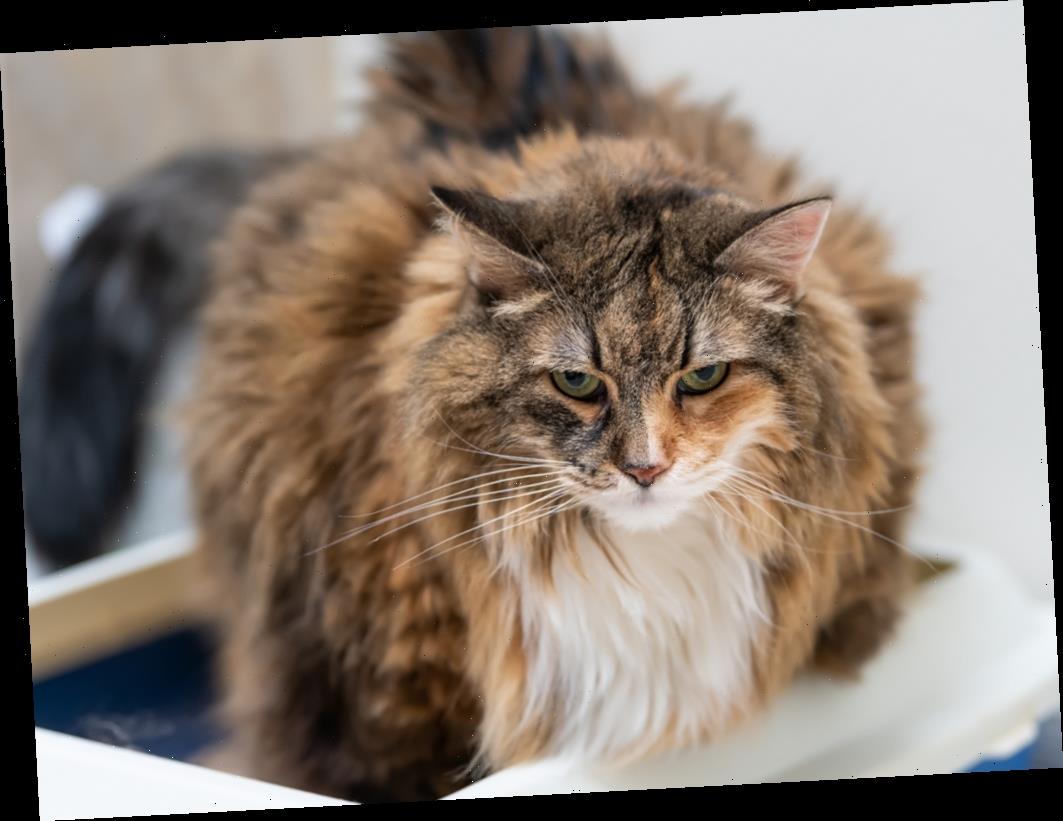Some days it seems like nobody is more vested in the science of cat feces and pregnancy risks than the partner looking to get out of scooping kitty litter for nine months. A recent Reddit post highlighted the efforts one dad-to-be will go through in order to avoid doing the stinky chore when he asked the internet if his wife’s “I can’t scoop litter for months” argument was just “a bit much.”
Predictably, veterinarians (and we suspect a few formerly pregnant cat owners) ask him to take several seats while explaining the science behind why experts almost unanimously advise pregnant people to avoid handling dirty kitty litter for the duration of their pregnancy, and why lazy partners need to step up.
Reddit user triclavian opened his post in the AITA subreddit by explaining that while he and his wife have three cats, he’s less enthusiastic about them than she is. This is why during the initial division of household chores, she was OK with being the sole litter scooper.
“She loves cats, and I love her being happy,” he wrote. And while that arrangement worked for a while, once she became pregnant and learned about toxoplasmosis (a disease born from a parasitic infection that is most commonly picked up from cat feces), that all changed.
According to ticlavian, his wife explained that she would need to step away from litter duty until after the baby was born, because the risk to their unborn child would be too great. He countered that she was blowing the whole thing out of proportion.
“I’ve looked into this, and just washing your hands after changing cat litter is all you need to do,” he wrote in his post just before adding a line he pulled from Wikipedia that claimed that there were numerous studies showing that living in a household with a cat is not a significant risk factor for infection, though living with several kittens has some significance.
“I don’t like to scoop litter, and I don’t like helping to encourage living in fear of things that are really unlikely to occur,” he concluded before coming back to add several edits and all bolded “full disclosure” addenda (presumably added after the bulk of the 627 comments started rolling in).
“While toxoplasmosis is an incredibly rare (congenital) infection, it’s still better safe than sorry,” wrote user Icefirewolflord, who later identified themselves as a veterinary student. “Zoonotic diseases are no joke. … Toxoplasmosis can easily kill your child if she contracts it. Even if infections are rare, contracting it (and passing it to the fetus) can and will be the end of your child.”
Another poster added that after spending nine years working in an optometry clinic, they can confirm that toxoplasmosis can have debilitating effects even when you’re not pregnant, as one of the side effects of infection is blindness.
Many without scientific credentials just chimed in to bash the expecting dad for trying to get out of helping.
“Since I got pregnant my husband insists I do not touch the kitty litter at all and he does all the scooping,” Trania86 wrote. “Sometimes AITA makes me realize how lucky I am. YTA OP, by the way. This is your baby’s life you aren’t willing to protect against a potential infection because ‘it’s her job.’”
“Oh the woes of the minor inconvenience of picking up an extra chore to help protect the woman you love who is carrying the fetus that will hopefully grow into the child you love too,” DontRunReds added. “P.S. if you think scooping cat litter is a pain in the butt, I have bad news for you about diapers.”
In the end the original poster came back to explain that while scooping the litter wasn’t his favorite chore, it wasn’t a hill he was willing to die on.
“To those of you who say she should divorce me, I agree,” he concluded. “I don’t think she should’ve married me in the first place. She has a history of making bad decisions.”
It’s OK, triclavian, you won’t have to scoop poop forever. And you should be thankful, when it comes to the business of growing a human, being the person who cleans the litter box is the easier job anyway!
These gorgeous photos show moms who love their postpartum bodies.
Source: Read Full Article

